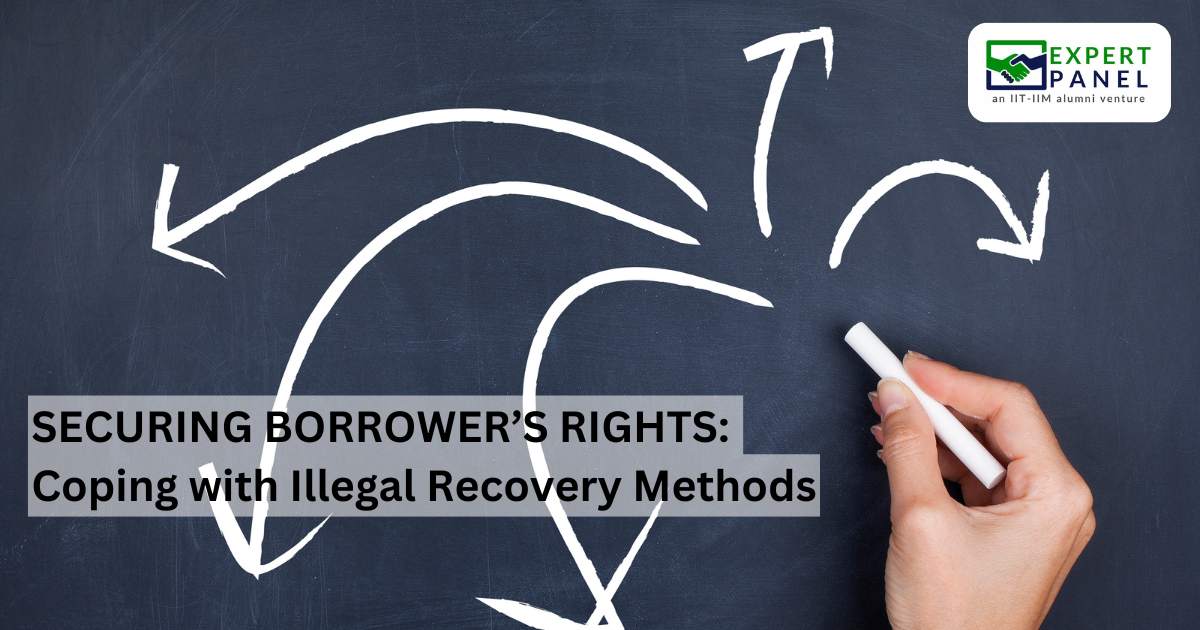· Debt Recovery · 4 min read
Securing Borrowers' Rights: Coping with Illegal Recovery Methods
"Learn how to protect yourself from illegal recovery practices and harassment from debt collectors. This guide covers your rights as a borrower under RBI guidelines, legal recourse through the Consumer Protection Act, and remedies under the SARFAESI Act to safeguard against abusive recovery tactics and secure justice."

In the current economy, most borrowers are under the threat of illegal recovery agents, who often engage in improper and illicit practices. One of the key factors contributing to this widespread problem is the lack of awareness among borrowers regarding their rights. These unscrupulous activities are often tolerated, not because they are acceptable, but because those affected do not know how to protect their interests. The fact is, you can fight against harassment—provided you know the rules and how to avoid being victimized.
This article examines the rights of borrowers as per the guidelines provided by the Reserve Bank of India (RBI) and outlines the legal measures that can be pursued by borrowers. These rights enable borrowers to protect themselves from abusive treatment and take appropriate action in pursuit of justice.
Understanding Borrowers’ Rights as per the RBI Guidelines
Borrowers should be aware of certain rights that protect them. The RBI has outlined procedures that recovery agents and bank employees should follow, ensuring that recovery efforts are conducted in a fair and non-hostile manner. Unfortunately, some unscrupulous lenders may act aggressively toward clients, taking advantage of borrowers’ lack of awareness.
Knowledge is power, so it’s surprising how few people are well-informed about their rights. Understanding key aspects of the RBI guidelines can make the difference between suffering in silence and seeking justice.
Key RBI Guidelines on Recovery Practices
a) Contact Timing Restrictions:
One of the most straightforward yet most abused rules is the time limit for recovery contacts. As per RBI, recovery calls or messages to borrowers are allowed only between 8:00 AM and 7:00 PM. Contacting borrowers outside these hours is a violation of their rights. Nevertheless, numerous complaints reveal that borrowers are often bombarded with calls well past acceptable hours, disturbing their peace.
b) Identification and Authorization of Recovery Agents:
Another important guideline under RBI is the identification requirement. Recovery agents must carry a valid ID and a bank authorization letter during any house or business visit. Additionally, recovery agents are required to reach out to the borrower before arriving at the location. If they fail to do so or are uncooperative, it’s illegal. Borrowers should demand ID and ensure they only deal with authorized individuals.
Personal Data Security Regulation
The RBI emphasizes confidentiality. Recovery agents are prohibited from sharing your financial information with unauthorized parties, such as neighbors, coworkers, or relatives. All personal and financial matters should remain confidential, addressed only with the borrower, to prevent unauthorized disclosure. If agents cross this line, they infringe upon borrowers’ rights and breach the trust placed in them.
Steps Borrowers Can Take to Counter Illegal Recovery Practices
a) Documenting the Events:
The first action when confronted with illegal recovery tactics is to document everything. Save call logs, text messages, emails, and record any calls involving harassment. Borrowers should avoid allowing recovery agents to visit their homes and maintain detailed documentation. These records can be invaluable if legal action becomes necessary.
b) Reporting to Authorities:
Once you have sufficient evidence, it’s time to take action. File a complaint with the bank’s grievance cell, as most banks are obligated to address complaints within a stipulated time. If unresolved, escalate the issue to the Banking Ombudsman at the RBI. For serious or continued harassment, report the matter to the police and file a complaint against the recovery agent.
Legal Recourse for Borrowers
a) Consumer Protection Act:
The Consumer Protection Act offers significant recourse for borrowers facing unethical recovery practices. As bank services categorize borrowers as consumers, they can file complaints and seek compensation if they experience harassment or mistreatment.
b) SARFAESI Act and Remedies:
The Securitization and Reconstruction of Financial Assets and Enforcement of Security Interest (SARFAESI) Act of 2002 provides a legal framework for banks to recover dues but also protects borrowers from unfair practices. If a lender fails to follow the procedures or violates protections under the SARFAESI Act, borrowers have the right to challenge these actions in court.
Conclusion
With growing competition in the financial services sector and increased government regulation, there has been a rise in financial distress and illegal recovery actions. However, as a borrower, remember your rights as provided by RBI guidelines and the SARFAESI Act to protect yourself from abuse. Document all interactions, register complaints for violations, and pursue legal action if necessary. History shows that when borrowers stand firm with knowledge and legal support, illegal recovery procedures lose their impact.

.7k4aTZVf.jpg)

.jpg.CyBm4nK9.jpeg)